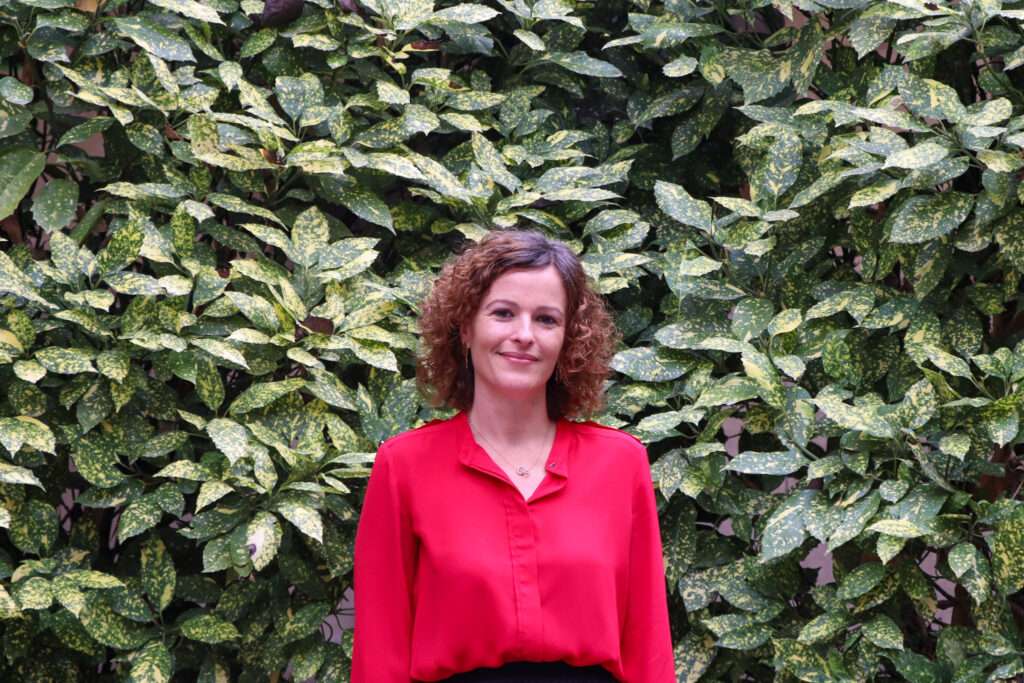Filomena Silva
Filomena Silva is a permanent researcher at the Aragonese Foundation for Research and Development (Spain). Her fellowship at the Montpellier Advanced Knowledge Institute on Transitions runs from 1 September 2023 to 29 February 2024.

Biography:
Filomena Silva is a permanent researcher at the Aragonese Foundation for Research and Development (ARAID) within the Analytical Research Group (GUIA) at the University of Zaragoza, Spain. Her research is at the forefront of food safety, particularly in the area of innovative packaging solutions. Filomena Silva’s focus is the development of active packaging strategies using nanomaterials and sustainable compounds such as scavengers, antimicrobials and antioxidants to extend the shelf life of food products.
Filomena Silva is currently actively involved in several projects. These include the development of cellulose nanofibres from recycled paper by ball milling, the eco-friendly synthesis and biodegradability assessment of cyclodextrin nanosponges for ethylene scavenging and encapsulation, and the exploration of essential oil blends to combat fungal growth on fruit.
Collaboration plays a key role in Filomena Silva’s research, with partnerships spanning Spanish and international institutions, including those in Italy (UNITO), Norway (PFI-RISE), Algeria (Université de Bejaia) and Portugal (UBI, UPorto).
In addition, Filomena Silva is currently supervising and coordinating three research projects, including the risk assessment of bio-based/recycled materials, the development of active packaging solutions for fresh produce, and a collaboration with a prominent Spanish company to develop novel antimicrobial products for pig artificial insemination.
Research interests :
- Antimicrobial food packaging;
- Poly(hydroxyalkanoates);
- Cyclodextrin nanosponges;
- Recycling;
- Circularity
Project: Cyclodextrin nanosponge to enhance bio-polyesters circularity
While conventional petro-plastics persist, fragment and diffuse for centuries, microbial polymers such as polyhydroxyalcanoates (PHAs) can degrade in a season time frame in natural conditions as cellulosic materials do. They in fact offer a common after-use pathway with biowaste and protect human health and the environment from micro-plastic pollution. However, as for most conventional plastics, their recycling is problematic due to the presence of absorbed contaminants that cannot be removed without degrading the polymers’ chains. The implementation of effective circularity applied to such PHA-based packaging materials will depend on the regulatory control of their contamination/decontamination during their reprocessing. The aim of this work is to close the loop and unlock the potential of biopolyesters by exploring a breakthrough recycling concept using cyclodextrins nanosponges (CD-NS). We hypothesize that once included in the outer layers of the biopolyesters, CD-NS will preferentially bind the contaminants because of their well-known high affinity for small organic compounds, aromatic and heavy metals. Afterwards, the decontamination of the outer layers of sensitive PHAs’ chain will be possible using mild process such as solvent extraction or sonication while preserving the inner layers quality and economic value and making PHAs both biodegradable and recyclable.
Why a fellowship in Montpellier?
The effervescent and thriving academic community of Montpellier is the perfect ecosystem to search for interactions with fellow research colleagues. During my stay at the ePOP team, I first expect to gain a lot more in-depth knowledge on bioplastics, from the development of materials to their end-life (biodegradability and recyclability) and ecological footprint. Within my research unit ‘Biopolymers and Emerging Technologies’ (IATE), I want to be able to exchange knowledge specially within two main research fields that are within my field of work: dealing with the engineering of biological reactions, specially from a microbiological point-of-view, and the valorisation of agro-food by-products. Additionally, I would really like to collaborate with research groups that work in the development of new antimicrobial/antioxidant molecules and are in search of new uses for their compounds, expertise in toxicological studies to evaluate the toxicity of new migrant molecules from emergent packaging materials and finally to be able to introduce people to the wonderful world of cyclodextrin nanosponges and food packaging
Recent publications on Filomena’s ORCID profile include:
- Gracia-Vallés, N., Ruiz-Torrubia, F., Mitchell, S.G., Nerín, C. and Silva, F. (2022). Developing ethyl lauroyl arginate antimicrobial films to combat Listeria monocytogenes in cured ham. Food Control, 141, p.109164. doi:https://doi.org/10.1016/j.foodcont.2022.109164.
- Rupérez, D., Nicolás Gracia-Vallés, Clavero, E., Silva, F. and Nerin, C. (2022). Mechanochemically Scaled-Up Alpha Cyclodextrin Nanosponges: Their Safety and Effectiveness as Ethylene Scavenger. Nanomaterials, 12(17), pp.2900–2900. doi:https://doi.org/10.3390/nano12172900.